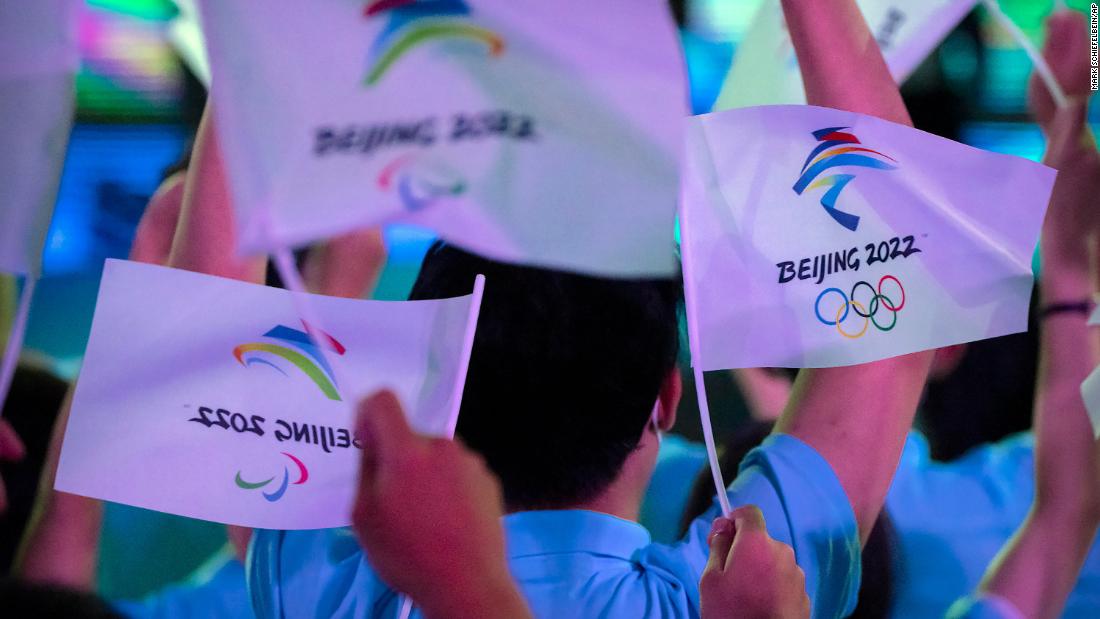US confirms diplomatic boycott of Winter Olympics

(CNN) – White House Press Secretary Jen Psaki announced Monday that President Joe Biden’s government will not send any diplomatic representatives to the 2022 Winter Olympics in Beijing to protest China’s human rights abuses in Xinjiang.
Psaki said the administration was sending a “clear message” that human rights abuses in China meant “there can’t be business as usual.”
“The Biden administration will not send any diplomatic or official representation to the Beijing 2022 Winter Olympic and Paralympic Games in light of the ongoing genocide and crimes against humanity in the People’s Republic of China in Xinjiang,” Psaki said at the press conference this Monday.
Psaki added that the US team had the “full support” of management, but that management would not “contribute to the fanfare of the game.”
“The diplomatic or official representation of the United States will treat these games as if it were business as usual in the face of human rights violations and atrocities in the People’s Republic of China in Xinjiang, and we simply cannot do that,” Psaki said.
Psaki said the diplomatic boycott of the Games did not mean “the end of concerns we would raise about human rights violations.”
When asked if the US is trying to persuade other allies to join the US in the diplomatic boycott, Psaki said the White House has informed allies of the US decision and “obviously we will let them make their own decisions.”
Psaki also said the White House did not consider it a “right” or fair move to punish American athletes by comprehensively boycotting the Olympic Games by the United States.
Psaki also said the White House did not consider it a “right” or fair move to punish American athletes by comprehensively boycotting the Olympic Games by the United States.
The press secretary said the US decision to conduct a diplomatic boycott was passed on to Chinese officials at a “lower level”.
“Definitely a lower level than President Biden. They were informed of the decision,” Psaki said when asked if Biden had given Xi Jinping notice of the decision.
Psaki also confirmed that the Olympics topic was not brought up during last month’s virtual summit between Biden and Xi.
There will never be a complete boycott of the Olympics
Psaki emphasized that there would be no complete boycott, which means that American athletes will still be able to compete. The last time the United States boycotted the Olympic Games entirely in Moscow was in 1980, when former President Jimmy Carter was in office.
Last month’s virtual summit between Biden and Chinese President Xi Jinping, considered one of the most important diplomatic talks of Biden’s presidency, yielded no tangible progress. However, it was an auspicious restart of relations following the sharp deterioration over the past year of the Trump administration and continuing hostility toward the Biden administration, even as US and Chinese diplomats exchanged attacks during a summit in Alaska in March.
During the November summit, Biden and Xi engaged in a “healthy debate,” according to a senior Biden administration official present at the discussions. Biden has expressed concerns about human rights, China’s aggressive stance toward Taiwan, and trade issues.
Biden and his relationship with China
Almost all of the major issues Biden is focusing on, including dealing with supply chain issues, climate change, North Korea and Iran, have to do with China. The two countries, the world’s two largest economies, remain at loggerheads over trade, military aggression, global infrastructure, public health and human rights.
Biden argues that democracies can operate more effectively than authoritarian regimes such as China, and he has used the Two-Party Infrastructure Act to show how political parties in democracies can work together at the national level.
Meanwhile, Xi cemented his consolidation in power after the Chinese Communist Party adopted a landmark decision that elevated him to the stature of his two most powerful predecessors: Mao Zedong and Deng Xiaoping. He is trying to seek an unprecedented third term at the party’s 20th convention this fall.

“Bacon advocate. Certified creator. Twitteraholic. Tv junkie. Beer fanatic. Internet nerd. Passionate thinker. Reader.”


:quality(70)/cloudfront-us-east-1.images.arcpublishing.com/elfinanciero/YDG4472QRJGMPHNKW6S4XD76GI.jpeg)



:quality(75)/cloudfront-us-east-1.images.arcpublishing.com/elcomercio/4RVP2XAGIRGJ5MSXST53STHBKI.jpg)

/cloudfront-eu-central-1.images.arcpublishing.com/prisa/X33WQ3GSYFF3DBKJDAVIGHN3DA.jpg)